Since the 1800s, Cast Iron Cookware has been the first choice for frying. However, in recent times, non-stick cookware too have gained popularity due to their easy use. So, which cookware is good for you. We have discussed this in detail; read on to know more!
- Comparison between Cast Iron and Non-stick cookware
- When do you need Non-Stick cookware?
- When do you need a Cast Iron cookware?
- Why do you need both types of cookware?
- Conclusion
1. Comparison between Cast Iron and Non-stick cookware
| Specifications | Cast Iron | Non-stick |
| Heat Tolerance | Cast iron pans can adeptly handle high levels of heat that is essential to create a good sear on meat. They don’t get damaged when exposed to high temperatures. | Non-stick pans should be kept away from high heat (above 500°F), otherwise coating will start to break down and release toxic fumes that have a lot of possible negative health effects. |
| Coating | You can develop natural stick resistant coating through regular seasoning. | They come with a stick resistant surface achieved through chemical coating. |
| Durability | If not broken, a cast iron cookware can last forever and can be passed from one generation to another. | A lot depends on how you use them. However, it is a fact that a non-stick cookware needs to be replaced every now and then. |
| Restoring | Even if you find some rust on your cookware, you can easily remove and restore your cookware. | You can’t restore your non-stick cookware if the coating is peeled off, chipped or burnt. |
| Cooking fat | You need to use some fat in the form of oil to create a barrier between food and the cookware surface. | You can easily enjoy zero oil cooking here. |
| Colour options | Almost all cast iron cookware have a similar rugged appearance and come in the shade of black. | There are many vibrant and brightly coloured non-stick cookware that can complement your kitchen décor. |
2. When do you need Non-stick cookware?
Non-stick cookware is great for low heat cooking. Pancakes are made for non-stick pans as they don’t need a high temperature to cook and the stick resistant property of the cookware allows you to flip the pancake seamlessly. In fact, non-stick pans are great for delicate food items that may otherwise disintegrate in a cast iron cookware- such as scrambled eggs (that kind of detest the rough surface of a cast iron pan). A high-quality non-stick pan is best for anything that requires a smooth release such as fish fillet or any dairy products. In addition, if you are going to cook something acidic (involving lemon, tomato or wine), trust your non-stick cookware to do the job for you.
3. When do you need a Cast Iron cookware?
Cast iron pans can handle an incredibly high level of heat that make them great for searing, browning and grilling food. The cast iron is slow to heat up, but it holds the heat for a really long time. So, if you want to cook something with a high level of heat, cast iron is the better choice. A cast iron cookware can easily go from the stovetop in a hot oven; this allows cooks to finish off their dishes wonderfully in the oven. You can use your cast iron cookware to bake cookies, pizza or prepare an extravagant chicken pie.
4. Why do you need both types of cookware?
Each cookware material is designed to handle certain ingredients differently. If non-stick cookware is perfect for all kinds of tricky recipes (such delicate fish, acidic food, scrambled eggs and so on), a cast iron cookware is great for browning meat, deep frying pakoras and getting that drool worthy char marks.
Points to consider to maintain your cookware.
1. Whenever you are buying a new cast iron cookware, go for a heavy duty cookware (that is hefty, too).
2. Also consider buying a pre-seasoned cast iron cookware to escape from the hassle of initial seasoning.
3. Do not wash cast iron cookware with cold water when it is hot. Let it come to room temperature. Also, wipe properly once washed to prevent rusting.
4. Do not wash your cast iron or non-stick cookware with a steel scrubber as that will damage the surface.
5. Do not use a metal spatula on non-stick as it can ruin the coating of the cookware. Always use wooden or silicone spatula.
6. Do not expose non-stick cookware to high temperatures.
7. Avoid washing your cookware in a dishwasher; wash them manually.
5. Conclusion :
You can never have “too many” cookware or clothes! Each piece has their own role and objective. Therefore, we recommend you to stock up your kitchen with the best quality non-stick pans and cast iron pans. So that you will never have a dearth of the right cooking tool!
Check out the premium range of Meyer Cookware here

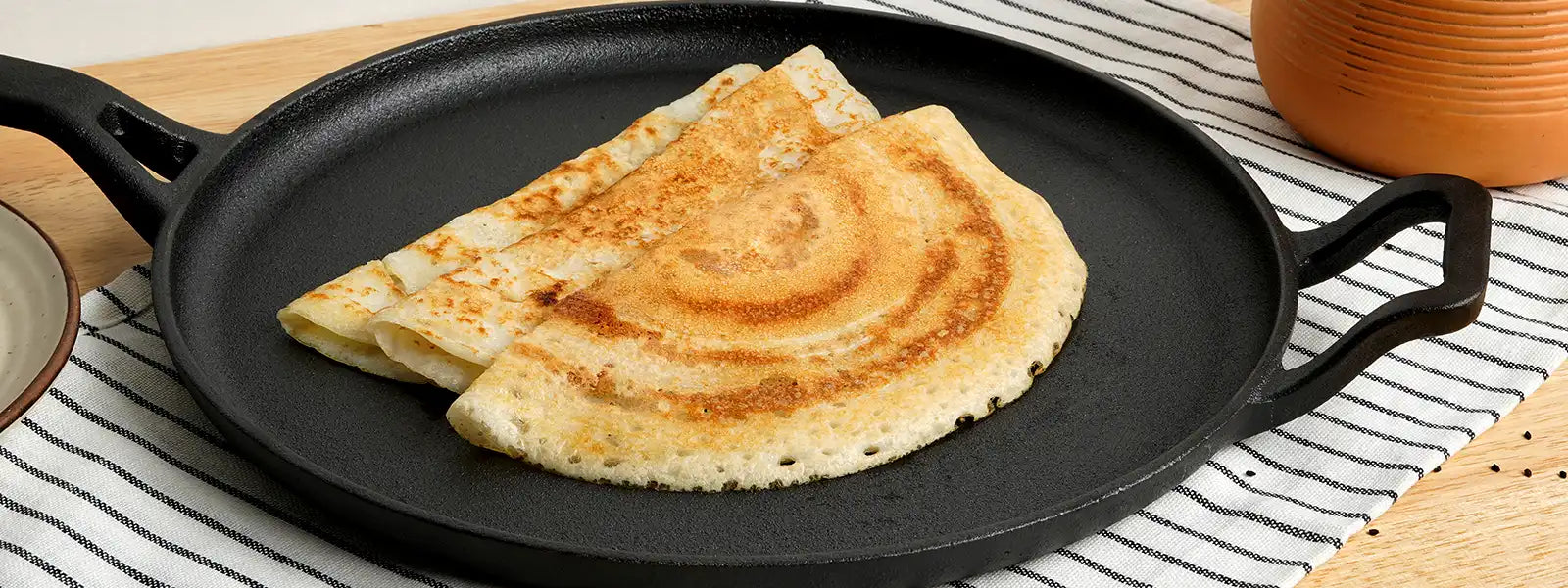
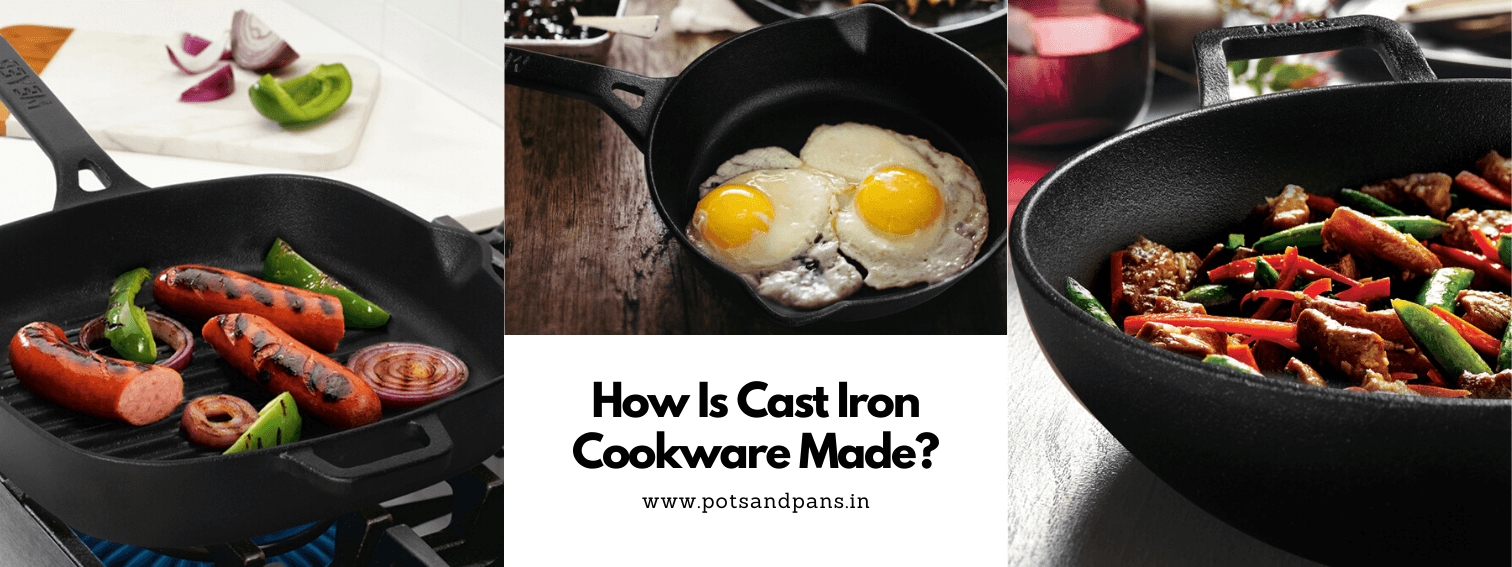
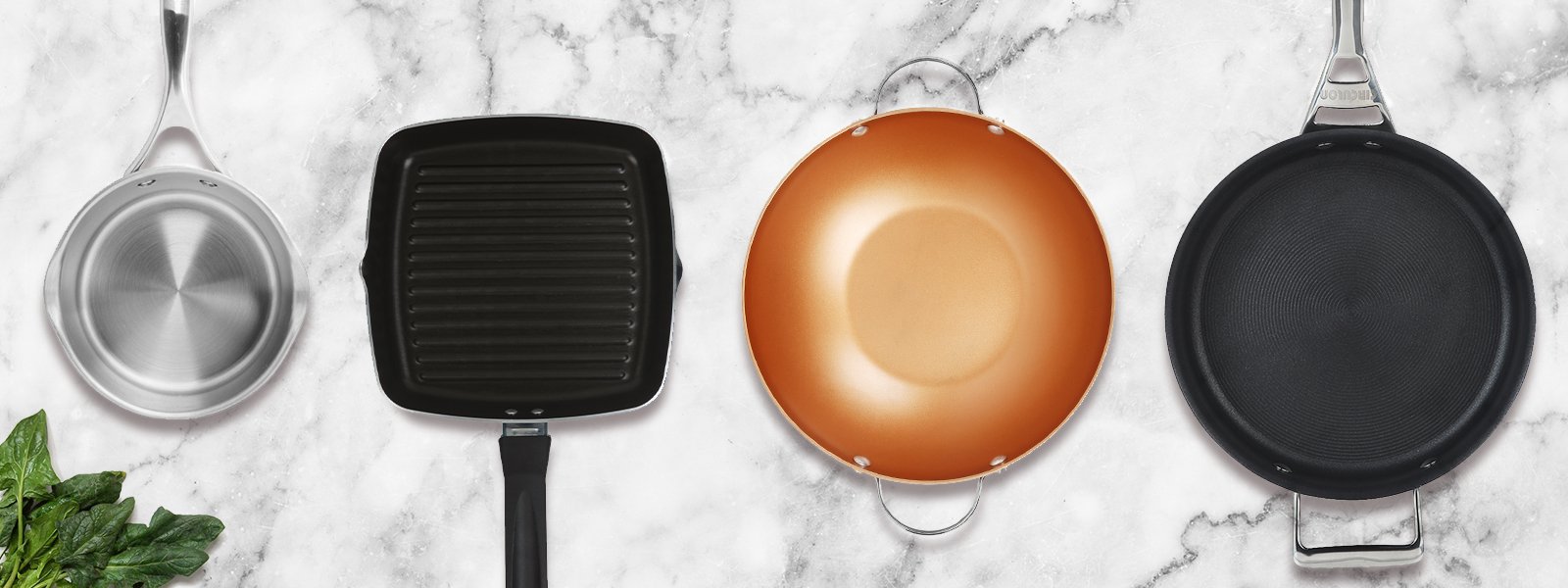
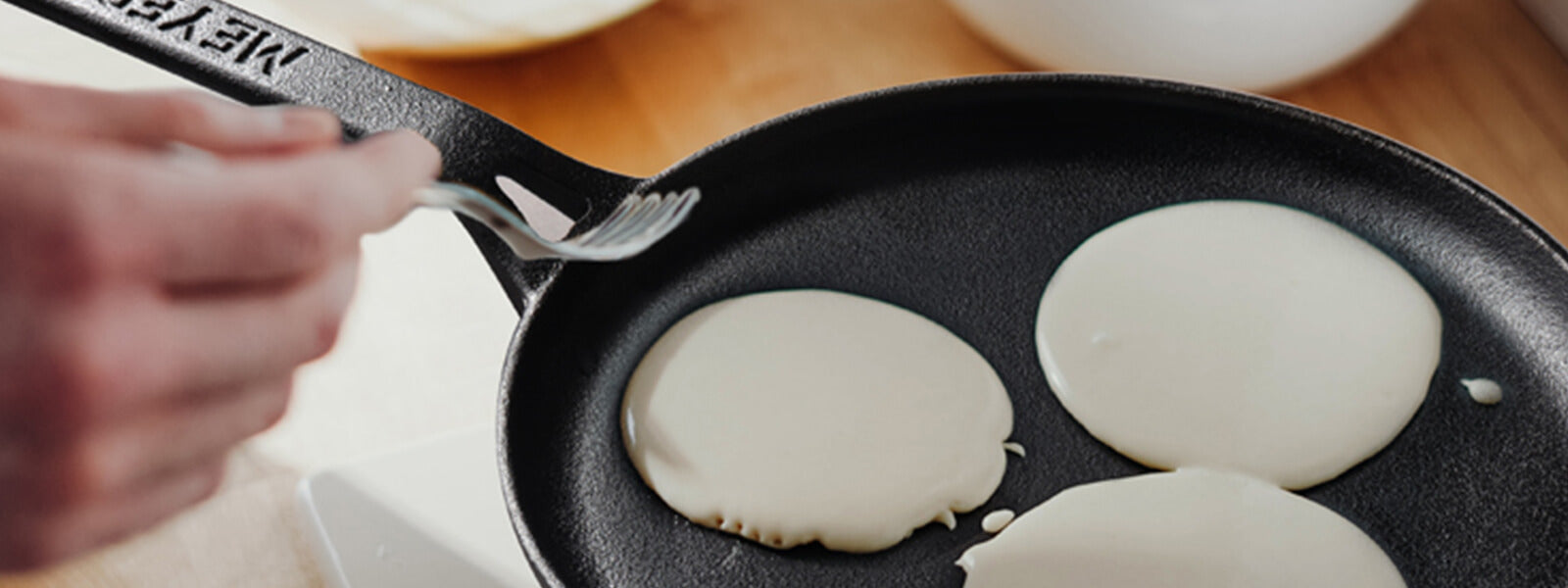
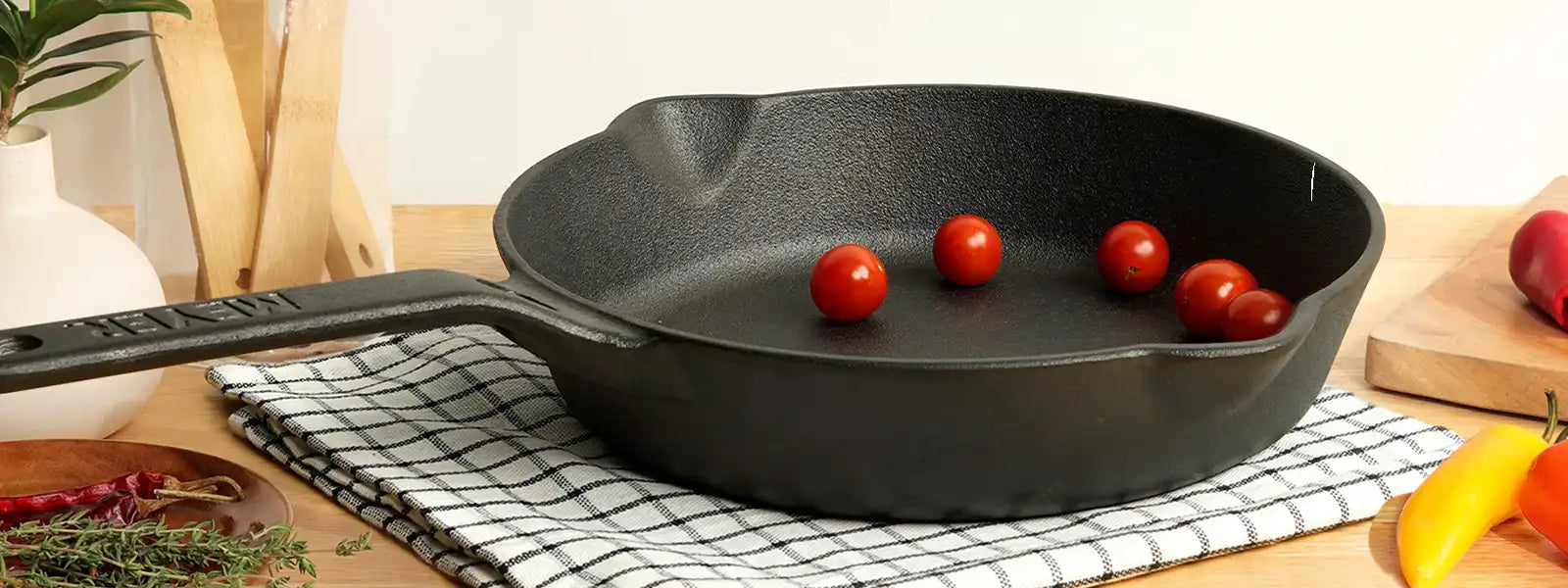
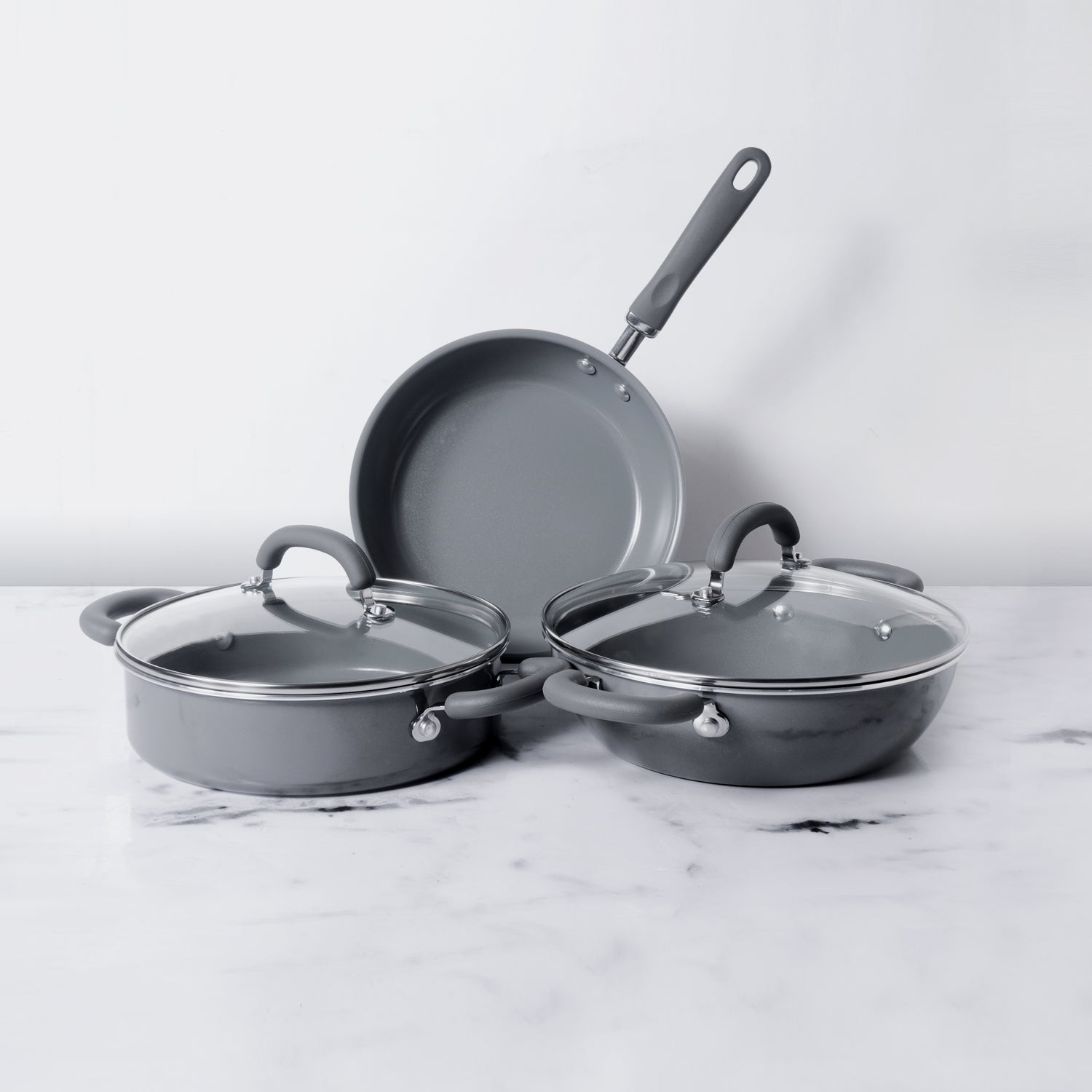
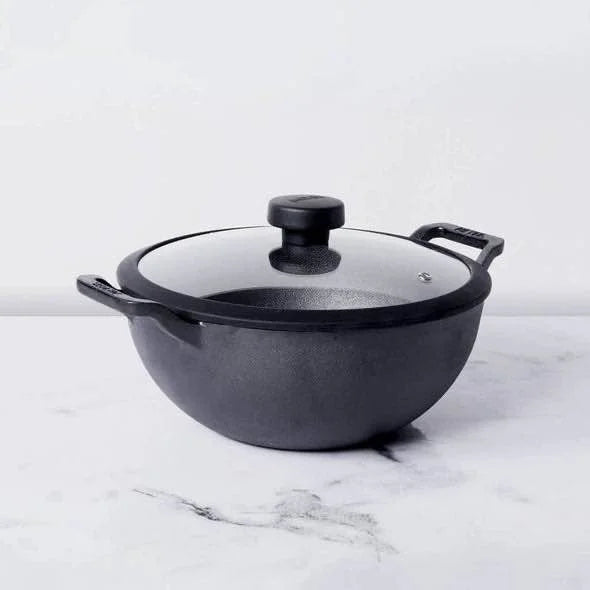




Leave a comment